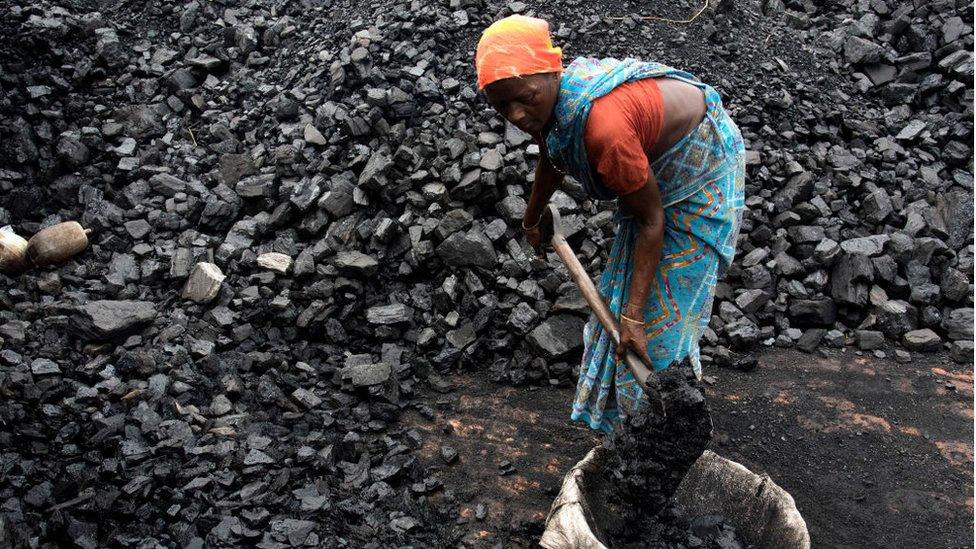COP26: India says coal will be mainstay in leaked report
- Published

Coal still powers more than 70% of India
Coal will continue to power much of India for the next few decades, the country told the UN, according to leaked documents seen by BBC News.
India is one of several countries that has been lobbying the UN against completely moving away from fossil fuels, the documents show.
Countries will be asked to commit to slashing greenhouse gas emissions at the COP26 climate summit in November.
India is the world's third-largest carbon emitter, after China and the US.
India aims for renewables and nuclear energy to account for 40% of its installed electricity capacity by 2030 - a goal it could achieve ahead of time, according to the Climate Action Tracker, external (CAT).
But it remains the world's second-largest consumer of coal, which still powers more than 70% of its grid. But coal will be difficult to give up, India has told the team of scientists compiling the UN report ahead of the summit in Glasgow.
The reports - which bring together evidence on how best to slow down global warming - are by the Intergovernmental Panel on Climate Change (IPCC), the UN body studying climate change.
"In spite of substantial growth in renewable energy sector in India, coal is likely to remain the mainstay of energy production in the next few decades for sustainable economic growth of the country," said a senior scientist from India's Central Institute of Mining and Fuel Research, according to the leaked documents.
CAT estimates that by 2030, India's emissions intensity will fall to 50% below 2005 levels, going past its avowed target, 35%. But India has yet to explain how it will reach net zero emissions - nor has it said by when it plans to do so.
China, the world's biggest carbon emitter and coal consumer, has pledged to go carbon neutral by 2060. And demand for coal in the country has also flattened, possibly leaving the future of the fossil fuel in the hands of Indian policy makers.